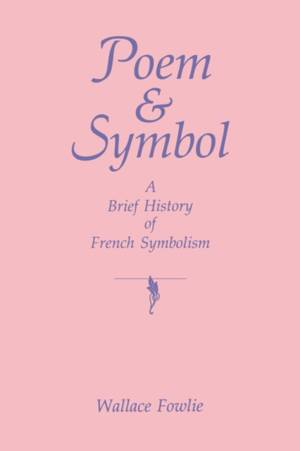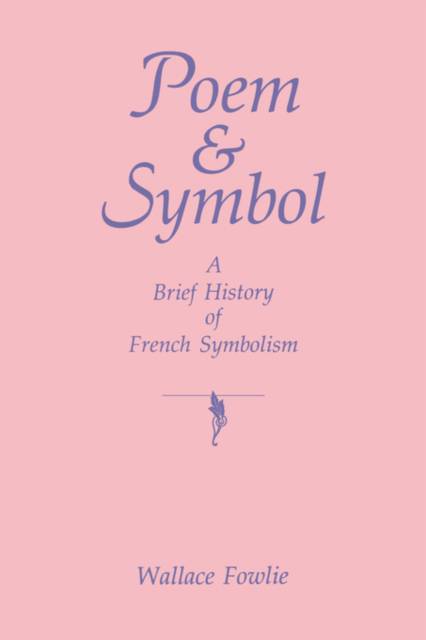
- Afhalen na 1 uur in een winkel met voorraad
- Gratis thuislevering in België vanaf € 30
- Ruim aanbod met 7 miljoen producten
- Afhalen na 1 uur in een winkel met voorraad
- Gratis thuislevering in België vanaf € 30
- Ruim aanbod met 7 miljoen producten
Omschrijving
Wallace Fowlie provides an uncommonly well-written survey of French Symbolism by way of analyzing key poems in relation to the historical and literary contexts in which they were written.
The literary symbol, as it has been used since Baudelaire's time, has in Fowlie's view a closer relationship with the religious spirit of humanity than with any practical or didactic use. Symbolism has been a major focus of literary study since Baudelaire's Correspondances, which can be seen as a succinct manifesto. It has provided an aesthetic basis for works that have elements of both myth and allegory. These are among the most impressive works of literature since 1850, which have reacted strongly against a realistic art of precision in order to reflect preoccupations that are religious and philosophical.
After tracing the background of Symbolism from Romanticism to "Art for Art's Sake," Fowlie considers the work of Nerval, Baudelaire, Mallarmé, Rimbaud, Laforgue, Corbière, and Verlaine. He then recapitulates the major features of Symbolism and illustrates its continuity to our day. Fowlie sees Symbolism and modern poetry not as the art of rules and obstacles, but rather as the art of triumph over obstacles and the transcendence of human adventure and experience. He concludes with penetrating analyses of the poetic practice of Valéry, Claudel, St. John Perse, and René Char.
Specificaties
Betrokkenen
- Auteur(s):
- Uitgeverij:
Inhoud
- Aantal bladzijden:
- 172
- Taal:
- Engels
Eigenschappen
- Productcode (EAN):
- 9780271006963
- Verschijningsdatum:
- 15/08/1990
- Uitvoering:
- Paperback
- Formaat:
- Trade paperback (VS)
- Afmetingen:
- 151 mm x 229 mm
- Gewicht:
- 276 g

Alleen bij Standaard Boekhandel
Beoordelingen
We publiceren alleen reviews die voldoen aan de voorwaarden voor reviews. Bekijk onze voorwaarden voor reviews.











